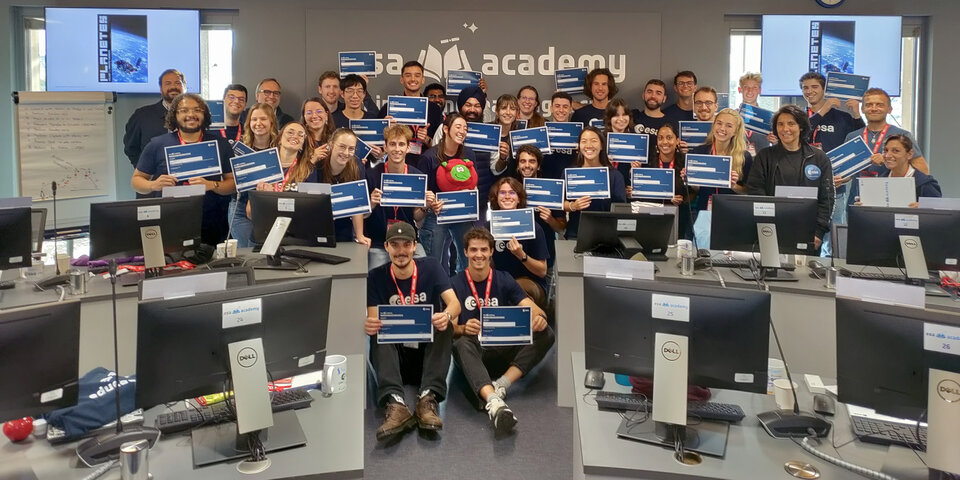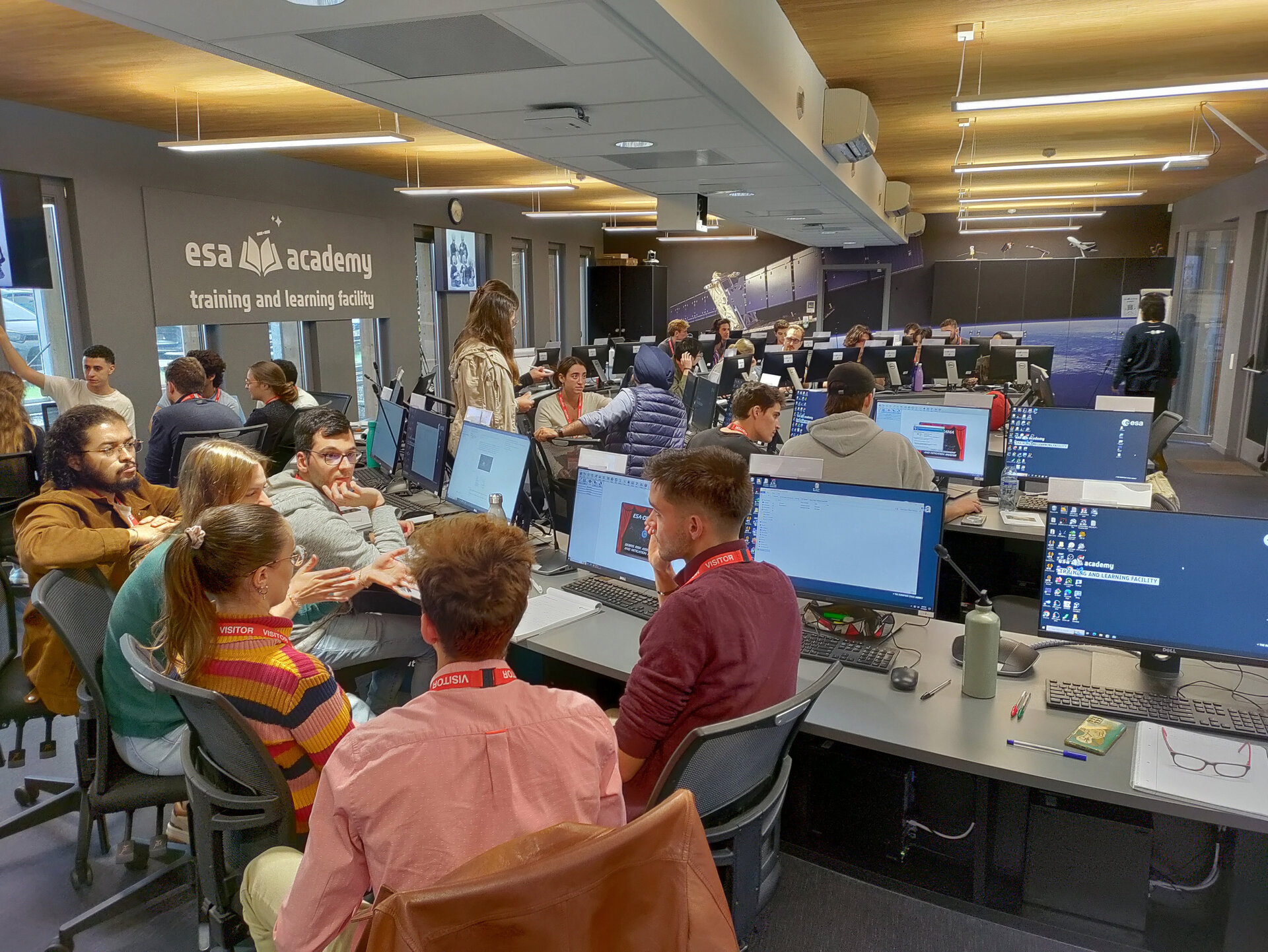Space Debris Training Course 2025: call for applications now open
In brief
Space debris is a threat to our satellites and spacecraft as well as a contributor to near-Earth space pollution. To help raise awareness of this issue, ESA’s Education Office is organising the 7th in-person edition of ESA Academy’s Space Debris Training Course. The Training Course will be held at ESA Academy’s Training and Learning Facility in ESEC-Galaxia, Transinne, Belgium, between 8 and 12 September 2025.
In-depth

Participating university students will learn about the space debris environment, specific mitigation measures and related technologies, future challenges such as large satellite constellations, how space traffic and debris objects impact spacecraft operations, as well as potential future solutions. Taught by ESA as well as external experts in the sector, the course will be delivered through formal technical lectures complemented by hands-on exercises based on a real-life case study.

This training course is a collaboration between ESA’s Education Office and ESA’s Space Debris Office, which coordinates ESA's research activities in all major space debris disciplines. These include measurements, modelling, protection, and mitigation strategies. It also provides risk assessment, supports mission preparation, and operates ESA’s collision avoidance system for a fleet of about 20 spacecraft, implements technology development aspects in the Agency’s Space Safety programme (S2P) and represents ESA on space debris matters at international bodies such as the IADC (Inter-Agency Debris Coordination Committee) or UNCOPUOS (United Nations Committee on the Peaceful Uses of Outer Space).
To enhance the learning experience, students will actively engage in a group project work throughout the week to apply their newly acquired knowledge and present their results to the experts for evaluation. Upon successful completion, participants will be awarded a certificate of participation and a course transcript, enabling them to request ECTS credit(s) from their respective universities.
Preliminary schedule
| Day 1 |
Forces acting on a space object The space debris environment and the zero debris approach Mitigation principles and guidelines Group project session 1 |
| Day 2 |
Space debris: legal & regulatory aspects Space debris mitigation context Deorbiting & passivation technologies The future of the environment Group project session 2 |
| Day 3 |
Space surveillance Operating in the space debris environment Collision avoidance Protection & shielding Group project session 3 |
| Day 4 |
Aerothermodynamic during re-entry Simulation of spacecraft destruction during atmospheric re-entry On-ground risk estimation Group project session 4 |
| Day 5 |
Design for demise Active debris removal Group project session 5 Group project presentation Conclusion |
More information
Who can apply?
To participate, students must fulfil the following eligibility criteria at the time of application:
- be aged minimum 18 years old. ESA Academy and relevant partners will only appraise applications from students who have no or limited professional experience in relevant engineering or space-related topics;
- be a citizen of an ESA Member State, an ESA Associate Member (Latvia, Lithuania, or Slovakia), or Canada*;
- be enrolled as a university student for the academic year 2024-2025 and/or 2025-2026 in a Master (i.e., MSc or equivalent) or a Doctoral (i.e., Ph.D. or equivalent) degree programme;
- be studying engineering, science, or business, with a base knowledge of space technology and astrodynamics.
* Canadian students enrolled in a Canadian post-secondary institution may apply for additional support from the Canadian Space Agency through this Announcement of Opportunity (grant applications must be submitted at least 7 weeks before the course delivery and account creation 3 weeks before the deadline). This additional support is to cover costs that are not already covered by ESA for selected Canadian post-secondary students.
Selected students will be requested to attend the entire 5-day training course at ESEC-Galaxia. They will be sponsored by ESA to cover accommodation and meal expenses, as well as up to 350 euros for travelling to Belgium.
How to apply:
- Fill in the application form;
- Upload a motivation letter (PDF, maximum 1 page, no image);
- Upload a CV (Europass format, PDF, maximum 2 pages, no image);
- Upload a formal recommendation letter (PDF, maximum 1 page, including signature, no images) from a university professor or academic supervisor of current university (if it is not possible to receive the recommendation letter from your referee, please ask them to send a recommendation email to [email protected] before the application deadline);
- Upload a copy of your Transcript of Grades from the two previous semesters, or, if not available, the previous graded academic year (PDF).
All answers and documents should be in English (Transcript of Grades can be submitted in language of hosting university, if unavailable in English).
The deadline for applications to participate in the Space Debris Training Course 2025 is 23 June 2025 23:59 CEST.
The selection announcement will be on 14 July 2025.
For more information, please contact [email protected].


